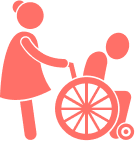Home Palliative Care Guide
Home Doctor and Nursing Care for Palliative Patients
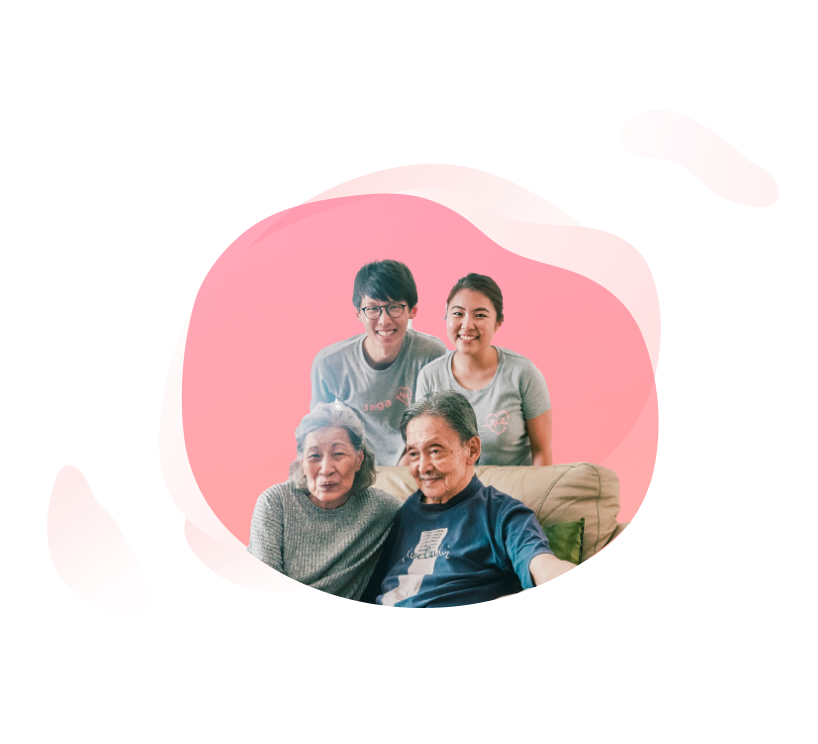
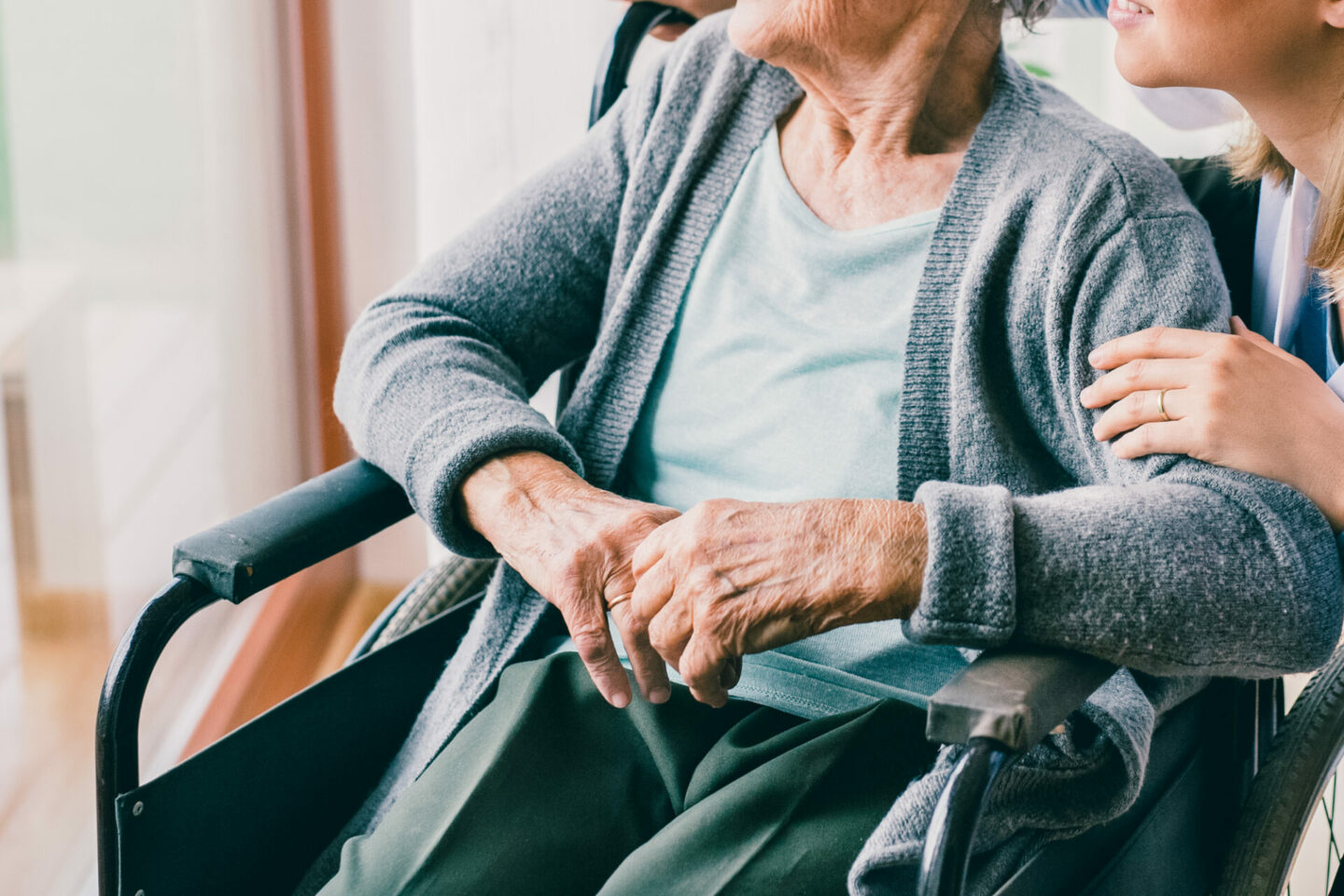
Caring for Palliative Patients at Home in Singapore
Palliative Care is for patients who are critically ill or have life-limiting diseases. The aim of palliative home care is to provide relief and support to patients, as compared to treating the disease aggressively, in the comfort of their own home. At Jaga-Me, we believe in making a dignified and comfortable journey for palliative patients, so they may live their life to the fullest.
Jaga-Me’s doctors and nurses will provide a holistic home palliative care plan for your loved one, ensuring a comfortable time for your care recipient in the comfort of his or her home. Vs being in an unfamiliar environment or requiring frequent medical escort and transport services from having to shuttle between home and hospital.
Palliative and Home Hospice Care in Singapore – Providing Hope for Dying Patients
When death comes knocking, how would you like to spend the last of your remaining life? According to a survey done by the Lien Foundation, 70% of Singaporeans wish to be cared for in the comforts of their own homes when they reach the end of life – also known as home palliative care.
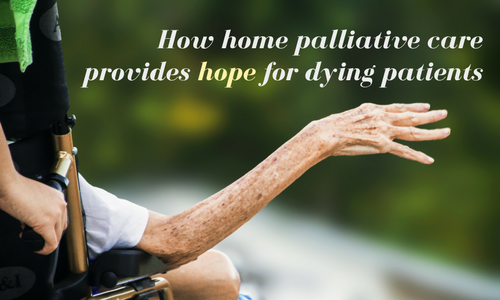
Differences Between Institutional and Palliative Care at Home
There are certain key differences between home care and institutional care in Singapore. Palliative care at home differs from facility-based care in the way that they are able to provide patients with a greater sense of independent living and comfort in familiarity. Indeed, being taken care of in a familiar environment with access to advanced medical facilities would enable more quality, round-the-clock care provided by trained and skilled nurses. Professional caregivers with proper caregiver training can take over laborious tasks such as feeding, bathing and clothing at home while family members can get peace of mind with the additional help they can get while they are still learning and adapting to being caregivers. Institutionalised hospice care is probably needed if the patient requires more holistic and extensive care that family members are unable to fulfil.
However, for terminally-ill patients already struggling with the news of their pessimistic prognosis, is moving into an entirely different and regimented environment – without the warmth and familiarity of family, really a better option?

Today, the advent of nursing homes, hospices, and eldercare facilities that provide professional care and ensure safety standards have greatly made ageing easier. Increasing affluence has also enabled aged care facilities access to proper meals, professional health services, and staff to keep the elderly active with community activities at these facilities.
Yet, most still consider modern old age homes terrifying, bleak, and even an unpleasant place to spend the last phase of one’s life.
This is because the difference between an institutional care facility and Palliative care at home is, is that an institutional care facility “just isn’t home“.
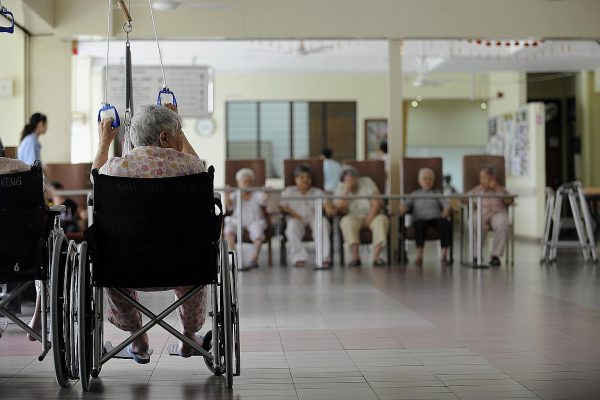
When to Consider Home Palliative Care
Living in an institutional care facility in Singapore can feel like a loss of independence and ownership for many patients due to them being subjected to a more structured lifestyle regime in the institution. For example, having to adhere to consistent bath timings and having the same variety of meals repeatedly. By relishing control of your own life, you do not get to choose what is good for you, even during the end of your life. Losing control and individuality of your own life can feel constricting and suffocating. And think about it, do the elderly in aged care facilities really feel more support being in a community of others “in the same situation”? Or do they feel more pessimistic?
This is why palliative home care which provides help in activities of daily living and medical care to your doorstep, can provide a hopeful alternative option for terminally-ill patients who wish to be at home at their end of life.
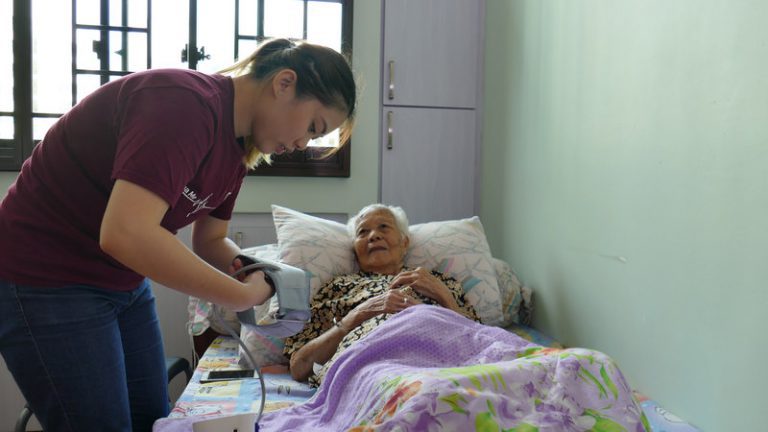
In such home palliative care services, caregivers improve the quality of life of patients by meeting their physical, emotional, mental and spiritual needs all in the comforts of their own homes. Home care aides and nurses provide a range of home palliative care services focused on relieving a patient’s symptoms and pain, to day-to-day activities such as feeding and showering. They also provide caregiver education for family members and counselling sessions to prepare family members in times of need.
There are 6 home hospice providers in Singapore, which serve a total of about 5,500 patients, many of whom enjoy free nursing at home and home medical visits. However, these periodic visits are limited by time. Beyond 3 hours of consultation a week, patients’ families have to find other ways to bear the burden of care. Home care platforms can help provide convenient and fast access to healthcare. Many palliative home care platforms in Singapore can provide you with on-demand home care services at the click of a mouse. With a medical professional within reach and guiding you along your caregiving journey, patients and families can then get the assurance they need. Of course, the quality of staff and experience with palliative care are factors that make a difference to families’ peace of mind.
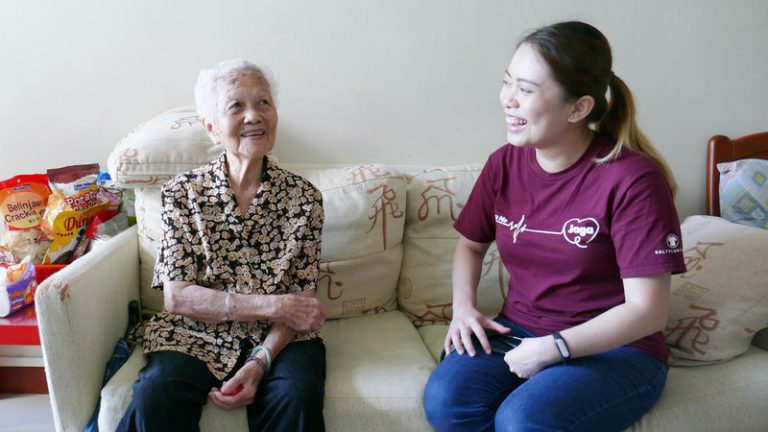
Terminally-ill patients often lose their sense of pride and dignity when they fall too sick to be living independently, causing them to have to depend on others for the simplest of tasks such as bathing and eating. Yet, it is this dignity that patients seek most as they conquer the final lap of their lives.
As Dr. Chong Poh Heng wrote on Channel NewsAsia, “Death is real, but so is hope. When one struggles with unrelieved pain from progressive disease, the will to live can only wane.”
Therefore, home palliative care improves the quality of life for terminally ill patients by giving them the option to lead the rest of their lives at home freely and with dignity. We’re glad that the advent of home care services really does provide hope and comfort for patients with the wish to be home at the end of their lives.

Pain Management
Our Jaga-Me doctors can prescribe the required medication while our Nurses (JagaPros) will administer medication to patients based on the level of pain they are experiencing. The administration of non-opioid/opioid medication will be tailored to relieve the level of pain the patient is experiencing. Opioids are drugs that act on the nervous system to help relieve pain. Our JagaPros can step in to administer drugs that are injectables (injections) when the patient can no longer take medications orally.
Managing Effects of Strong Opioids
- Constipation – Use appropriate dosage of laxatives
- Nausea – Anti-nausea drugs can be used to combat nausea symptoms
- Drowsiness – Reduce dosage of opioids. Just inform our nurse!
Seek advice from your nurse or doctor on how to manage and alleviate discomfort for your loved ones. The effects of opioids can vary for different individuals.
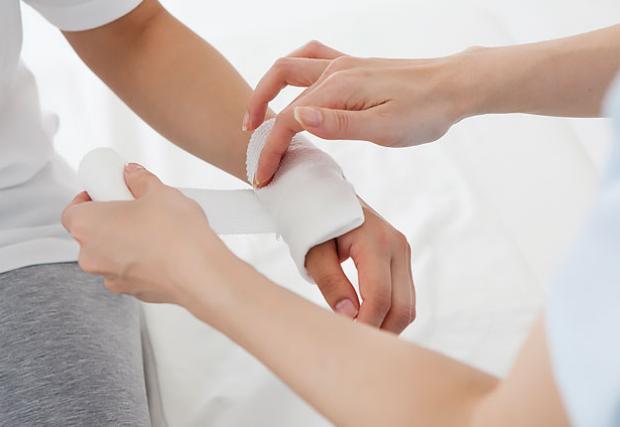
Wound Care Management
Our JagaPros will assess the wound before taking the necessary action to address the wound. Wounds can become chronic if it is not healed properly. Chronic wounds cause discomfort when it develops into an infection caused by other medical conditions such as diabetes or poor nutrition. It is imperative for caregivers to understand that wound care is vital to prevent infection and discomfort in palliative patients. Wound care management improves the quality of life as it eliminates discomfort and pain for your loved ones.
Wound Dressing Products We Use
1. Wound Dressing Set
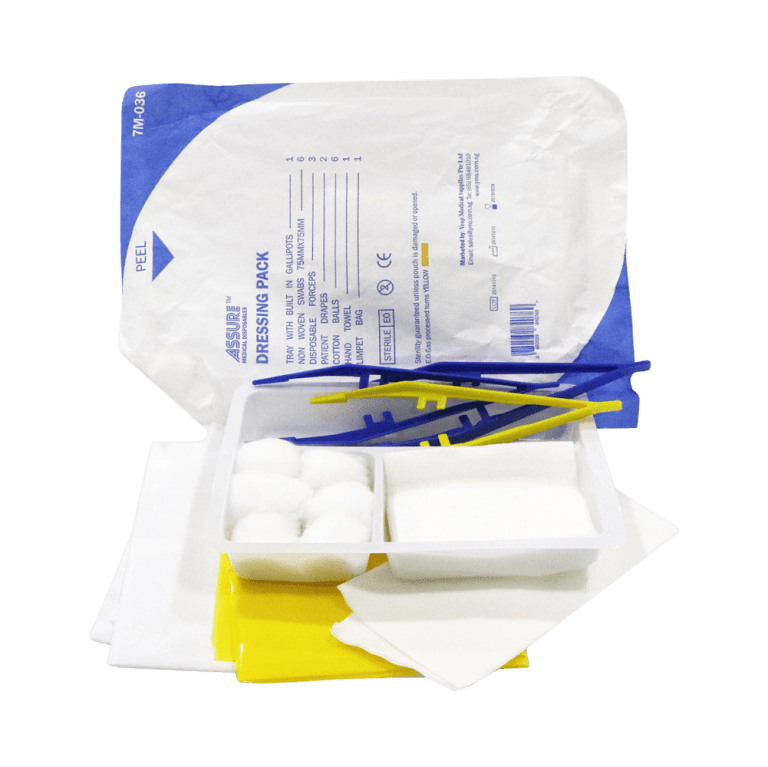
- 1 Tray with built-in gallipots
- 4 Non woven swabs
- 3 disposable forceps
- 2 patient drapes
- 6 cotton balls
- 1 hand towel
- 1 Limpet bag
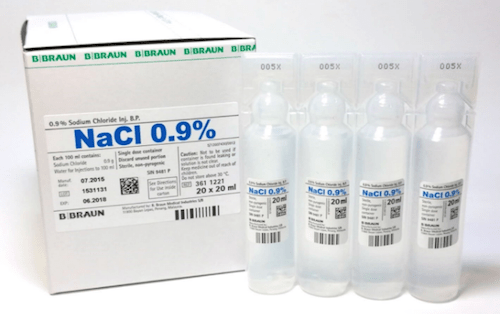
2. Saline Solution
- A cleansing solution for wound dressing
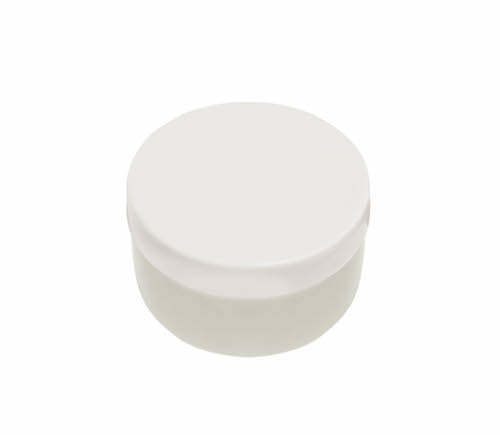
- Recommended medicine by doctors to promote healing
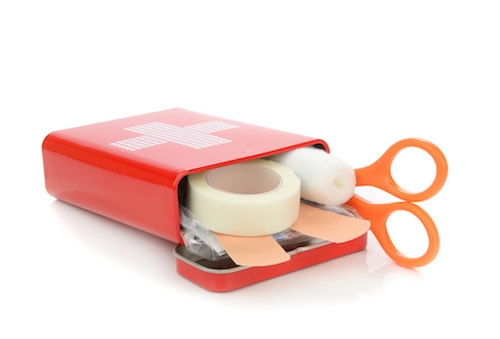
4. Adhesive Tapes
- To secure the wound dressing
Our JagaPros will select the type of wound dressing based on the assessment of the type of wound the patient has. Be assured that every care received by the patient is personalised and tailored to suit the caregiver and patient’s needs.
Wound Care Tips
- Ensure hands are washed thoroughly before commencing wound dressing.
- Loosen the patient’s dressing. After loosening the patient’s dressing, wash your hands again.
- Open the clean dressing set. Hands should be washed again after opening the set.
- Dry hands using the hand towel from the dressing set.
- Use the disinfected forceps without touching the ends of it that hold the gauze.
- Pour the recommended amount of cleansing solution on the gauze.
- Use the forceps to pick up the old dressing. If the old dressing is dry, soak the dressing with saline water before proceeding.
- Use only 1 gauze for every stroke of cleansing and throw the gauze after each use.
- Observe the gauze for any blood, pus and odour. Check the colour of the blood and pus as well.
- Observe the wound size and depth of the wound.
- Apply dressing to the wound.
- Secure the dressing with adhesive tape.
- Throw all dressing products wrapped in a plastic bag into the bin.
- Inform your nurse/doctor if the patient is experiencing fever, excessive pus, blood, odour or experiencing pain.
Pressure Ulcer Management
Pressure ulcers are a common occurrence for palliative patients who are immobile. Palliative patients are prone to dry skin and this encourages the development of pressure ulcers. Thus, pressure ulcer management is key to ensure the comfort of your loved ones. Our JagaPros will ensure that preventive measures are taken to avoid the development of pressure ulcers.
Ulcer Prevention
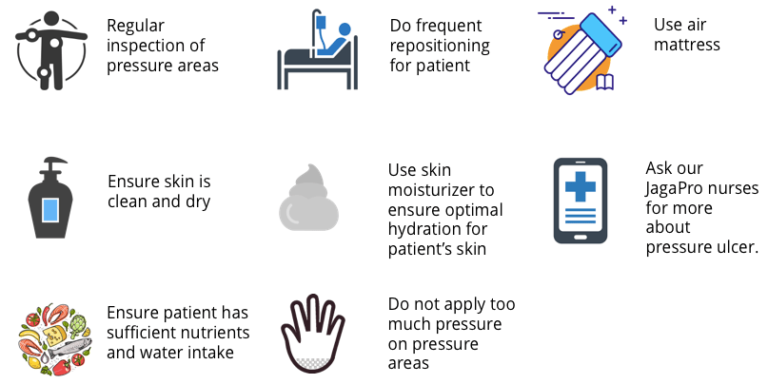
Ulcer Treatment
Our JagaPros will set and personalise treatment goals for the patient. Our nurse will conduct an assessment and a reassessment of the pressure ulcer wound before each dressing change. Our nurse will also determine the level of pain and administer pain medication accordingly.
The wound dressing will be selected based on:
- Keeping the wound area moist
- Chance of bacterial growth
- Presence of odour
- The condition of the skin tissue
- The size, depth and location of the wound
- The presence of wound tunnelling
- The individual patient’s need for care
In addition, our JagaPros will inform the patient and family about what skin condition changes to look out for, and how to map the plan of care accordingly.

Simple Home Oral Care Management
Many palliative patients suffer from poor oral health because of the misconception that oral care should only be maintained when food is consumed. In our experience, we believe it is important for palliative patients to maintain their oral hygiene. The mouth region is the gateway to our internal organs. Therefore, it is necessary to keep the patient’s mouth clean and bacteria-free. Although saliva helps to clear bacteria from the mouth, saliva flow might be affected due to the consumption of medication. This will result in bacterial decay in the patient’s mouth. Thus, oral care is vital for palliative patients as it helps prevent pneumonia and gum diseases.
Oral Health Tips
Check with our friendly JagaPros when you engage with our services if you have any queries about the necessary oral care for your loved ones. Alternatively, clarify any doubts you have about oral health with your nurse/doctor.
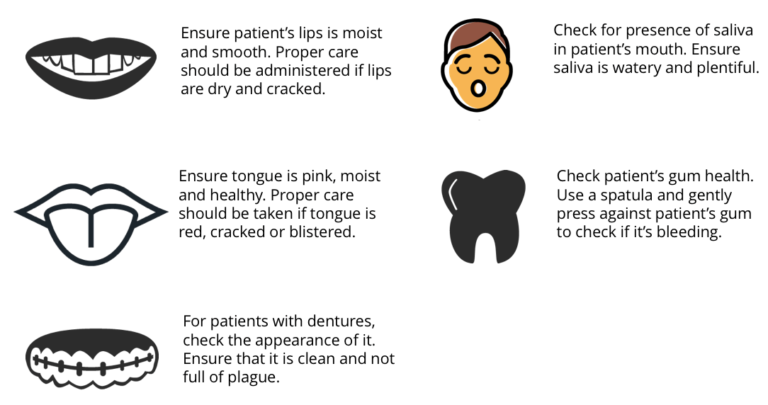
Oral Care Products
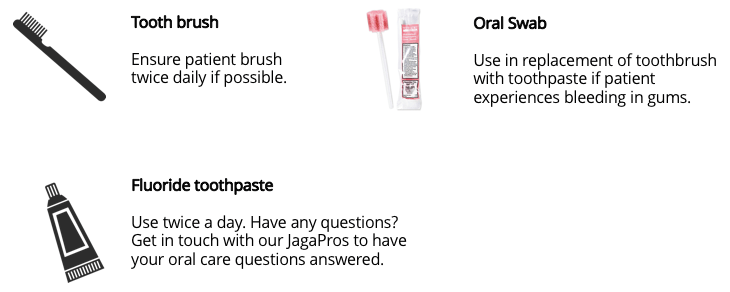
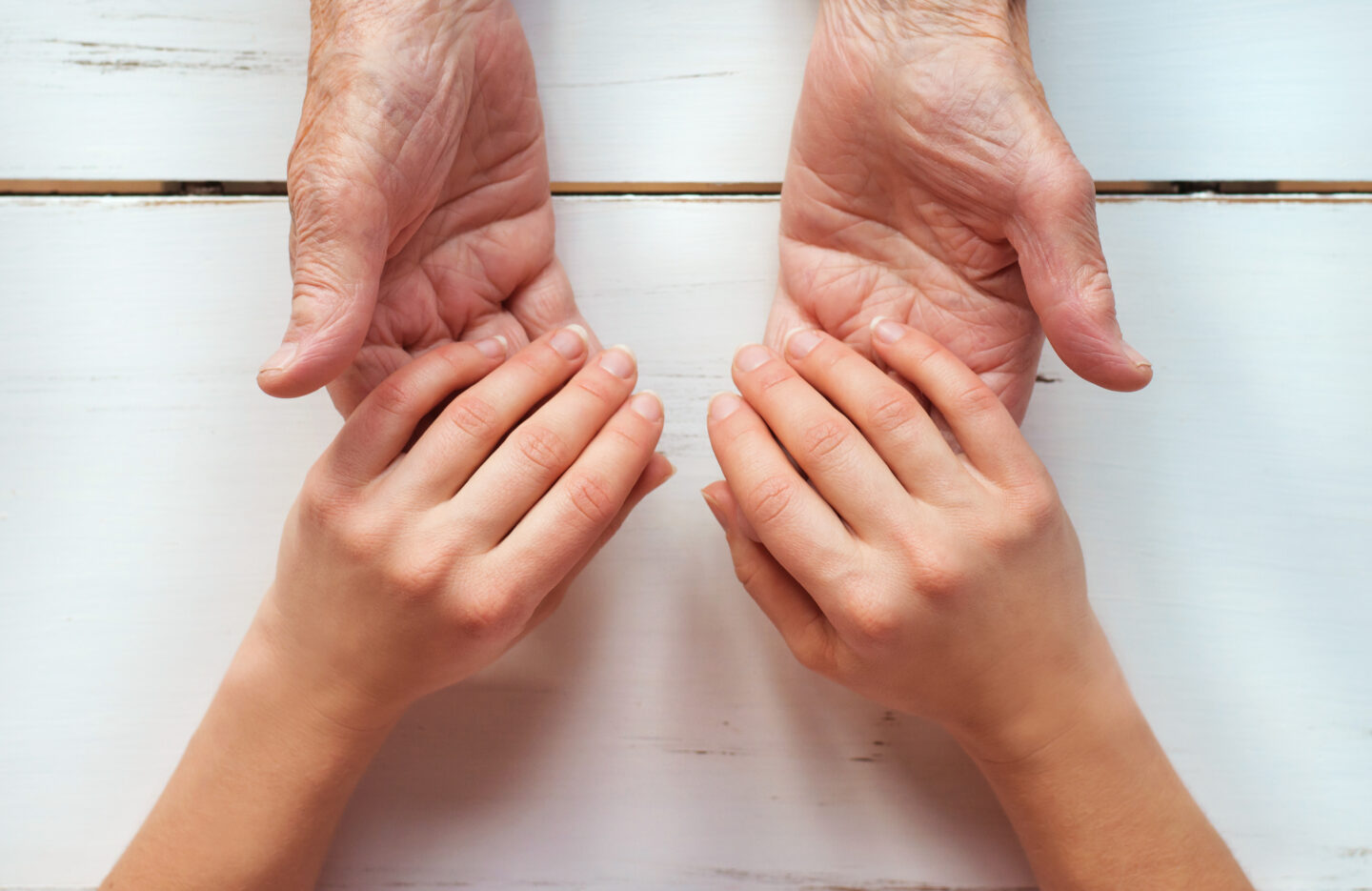
Active Dying Phases
Dying is a natural process in life. Thus, we always strive to ensure that our loved ones will have a comfortable journey towards the end. It is vital for caregivers to recognize the symptoms of a patient actively dying.
Not eating/drinking
Many caregivers often panic and force feed their care recipients when they stop eating/drinking. This is a natural process of the body shutting down.
Swallow reflex affected
If a patient starts to cough when given food/fluids, it shows he has little to no swallow reflex. It is important to call your nurse/doctor when your care recipient shows signs of this. This indicates that the patient needs to have their medication (e.g. pain medication) injected by a professional nurse/ doctor instead of taking them orally. Jaga-Me provides professional services for injections. If you need professional help administering injections for your palliative patient at home, check out our Jaga-Me website for more information on how you can engage our nurses to perform these procedures.
Breathlessness
Patient breathing becomes shorter and he/she may start to pant. This is known as Cheyne-Stokes breathing. It is where a patient’s breathing may suddenly stop and restart again. Do not panic when this happens, as it is a normal symptom of a patient dying.
Sleeps more often
The patient might sleep more and may even be drowsy when awake. This might be a result of opiates being administered to the patient. Check with your doctor/nurse in regard to medication.
Skin colour & body temperature changes
The skin around the patient’s fingers and toes might look blue (known as cyanosis). This happens because the body is conserving energy for core functions instead. The colour of the patient’s skin might turn grey as well. The temperature of the patient’s body will be cold and there might be some swelling on the patient’s hands and feet. This is known as oedema.
Hallucinations
Your loved one might experience hallucinations. This is caused by the body’s chemical imbalance. Ensure that family members are there to reassure the patient. Holding your loved one’s hands or gentle stroking will help him/her feel calm and assured. Putting on soft music in the room will also be helpful.
Emotional Support
It is imperative for caregivers to understand the procedures and treatments used in palliative care. Our nurses will be there to explain the treatment and care procedures to you every step of the way. It is also important for caregivers to understand their own limitations and seek help. Our JagaPros will provide you with companionship and a listening ear. We will be there to relieve any sense of helplessness you experience on this journey.
Jaga-Me Can Help with Hospice Care at Home
Caring for an end-of-life loved one is not an easy task. Let Jaga-Me ease your burden. Book our services or call us to find out more about our dementia day and palliative home care services in Singapore.







